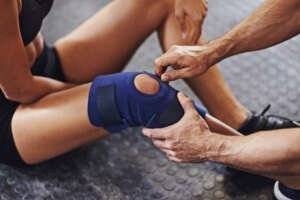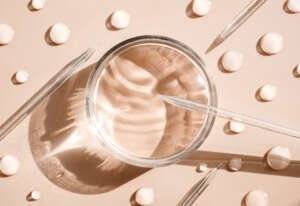Recovering from an anterior cruciate ligament (ACL) injury is often seen as a long and challenging process. While surgery, physical therapy, and rest play vital roles, proper nutrition can also be a game-changer in expediting recovery. Among key nutrients, collagen stands out as a critical component in rebuilding and fortifying ligaments. Here’s how collagen aids in ACL recovery and how you can integrate it into your recovery plan.

Understanding Collagen and Its Importance
Collagen is a structural protein that serves as the glue holding together your skin, bones, tendons, and ligaments. Its unique properties ensure strength and elasticity in connective tissues, making it indispensable for joint health and recovery.
ACL ligaments, like others in the body, are composed largely of collagen. After an injury or surgery, the body requires collagen to regenerate damaged tissues and restore functionality. Without sufficient collagen, the healing process slows, leaving ligaments weaker and more prone to re-injury.
How Collagen Aids ACL Recovery
1. Accelerates Tissue Regeneration
Collagen provides essential amino acids such as glycine, proline, and hydroxyproline, which promote the formation of new connective tissues. These amino acids activate fibroblasts—cells responsible for producing collagen—ensuring the effective repair of torn ligaments.
2. Strengthens Tendons and Ligaments
Studies, such as those published in the American Journal of Clinical Nutrition, show that combining collagen supplementation with resistance exercises significantly enhances tendon stiffness and ligament strength. For ACL recovery, this strength is essential to restore joint stability.
3. Reduces Inflammation
Collagen peptides are known to possess bioactive compounds that help reduce inflammation by lowering markers such as cytokines. By easing inflammation, collagen allows the body to focus on repairing tissues rather than combating swelling.
4. Repairs Cartilage Damage
ACL injuries often involve damage to surrounding structures like cartilage. Collagen contributes to cartilage repair by promoting its regeneration, improving overall knee health and mobility.
How to Incorporate Collagen into Your Recovery Plan
Adding collagen to your daily routine is straightforward with these strategies

1. Use High-Quality Collagen Supplements
Opt for hydrolyzed collagen peptides for better absorption. These tasteless powders can be easily mixed into smoothies, coffee, or water.
2. Time Your Intake
Taking collagen an hour before physical therapy or resistance exercises has been shown to maximize its benefits by enhancing collagen synthesis.
3. Pair with Vitamin C
Vitamin C is essential for collagen synthesis. Combine your collagen supplement with vitamin C-rich foods like oranges, bell peppers, or strawberries for maximum effectiveness.
4. Incorporate Collagen-Rich Foods
If you prefer natural sources, consider foods like bone broth, chicken skin, fish with skin, and pork rinds, which are rich in collagen.
5. Stay Consistent
Consistency is key. Make collagen supplementation or consumption a daily habit to ensure the body has a steady supply of nutrients for tissue repair.
Debunking Common Myths About Collagen and ACL Recovery
Myth 1: Collagen Doesn’t Survive Digestion
While collagen is broken down into amino acids during digestion, the body reassembles these amino acids to create new collagen. Hydrolyzed collagen is specifically designed for better absorption and utilization.
Myth 2: Supplements Are the Only Way to Get Collagen
A collagen-rich diet can be equally effective if maintained consistently. Supplements are a convenient option but are not the sole source of this critical nutrient.
Practical Tips for Recovery
- Stay Hydrated: Proper hydration enhances the delivery of nutrients, including collagen, to injured tissues.
- Follow a Balanced Diet: Include foods that support overall healing, such as lean proteins, whole grains, and colorful fruits and vegetables.
- Combine Nutrition with Therapy: Pair your diet with physical therapy for the best results.
- Consult a Professional: Always seek guidance from a healthcare provider or dietitian to tailor your nutritional approach to your specific recovery needs.
The Role of Science in Collagen’s Efficacy
- A study in the American Journal of Clinical Nutrition highlights that combining collagen supplementation with vitamin C significantly enhances collagen synthesis.
- Research in the British Journal of Nutrition demonstrates improved tendon strength and muscle function with collagen intake during resistance training.
- Clinical evidence published in Osteoarthritis and Cartilage underscores collagen hydrolysate’s effectiveness in joint and ligament repair.
Final Thoughts: Collagen as Your Recovery Ally
ACL recovery is a multifaceted process requiring surgical, therapeutic, and nutritional interventions. Collagen, with its proven ability to strengthen ligaments, reduce inflammation, and promote tissue repair, is an invaluable addition to your recovery toolkit. By integrating collagen supplements or collagen-rich foods into your routine, you can accelerate healing and reduce the risk of re-injury.
Take the first step toward a stronger, more resilient ACL by prioritizing nutrition alongside your rehabilitation plan. Always consult your healthcare provider for personalized advice tailored to your recovery journey.
References
- Shaw, G., Lee-Barthel, A., Ross, M. L., Wang, B., & Baar, K. (2017). Vitamin C-enriched gelatin supplementation before intermittent activity augments collagen synthesis. American Journal of Clinical Nutrition, 105(1), 136-143.
- Clark, K. L., Sebastianelli, W., Flechsenhar, K. R., et al. (2008). 24-week study on the use of collagen hydrolysate as a dietary supplement in athletes with activity-related joint pain. Current Medical Research and Opinion, 24(5), 1485-1496.
- Daneault, A., Prawitt, J., Fabien, S., & Bielmann, D. (2017). Clinical evidence of collagen hydrolysate bioavailability and efficacy in joint and bone health. Osteoarthritis and Cartilage, 25(S1), S62-S63.
- Zdzieblik, D., Oesser, S., Gollhofer, A., König, D. (2015). Collagen peptide supplementation in combination with resistance training improves body composition and increases muscle strength in sarcopenic men: a randomized controlled trial. British Journal of Nutrition, 114(8), 1237-1245.


